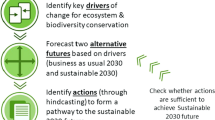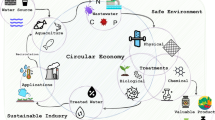Abstract
The important contributions made by fisheries and aquaculture, in meeting the world food and nutritional demands need to be comprehended and their sustainable management is imperative for food security and nutrition. According to the FAO report (FAO 2012), fisheries and aquaculture contributed around 16 % of animal protein intake and support to the livelihood of 10–12 % of the world population. Employment in the fisheries and aquaculture primary sector has continued to grow faster than employment in agriculture, so that by 2010 it represented 4.2 % of the 1.3 billion people economically active in the broad agricultural sectors worldwide, compared with 2.7 % in 1990. Aquaculture is the fastest growing form of food production in the world with tremendous annual growth rates of 8.8 % per year, having expanded by almost 12 times in the last three decades (1980–2010), providing now more than 40 % of the fish consumed worldwide, allowing to keep pace with the growing demand while capture fisheries are stagnating. However, the rapid development of aquaculture has come with associated environmental costs such as habitat degradation, disease and pollution. The inland capture fisheries sectors are threatened by habitat degradation, pollution, invasive species, landscape fragmentation, disruption of river flows by dams and overexploitation of upstream water resources. Most of the stocks of the top ten species, which account in total for about 30 % of world marine capture fisheries production are fully exploited and, therefore, have no potential for increases in production. Integrated aquatic resource management with multiple objectives to meet economic, social and biological goals adapting ecosystem approach is vital for the sustainable development, equity and efficiency. As a concept, a stabilised aquatic resource system aims to ensure that resource exploitation contributes to sustainability, inclusive social development and economic growth, while seeking to counter the notion that sustainability and growth are mutually exclusive.
Similar content being viewed by others
References
ADB 2009 Operational plan for sustainable food security in Asia and the Pacific ISBN 978-971-561-885-4
FAO 2012 World review of fisheries and aquaculture
ICLARM 1994 Living aquatic resources and sustainable food security in the developing world, summary statement provided by ICLARM
Liao C, Chao NH (2009) Aquaculture and food crisis: opportunities and constraints. Asia Pac J Clin Nutr 18(4):564–569
Scoones I, Thompson J (eds) (2009) Farmer first revisited: innovation for agricultural research and development ISBN 978-185339-682-3
Speer, L., 1995 Marine fisheries, population and consumption: science and policy issues by Natural Resources Defence Council
UNEP 2011 An ecosystem services approach to water and food security by the International Water Management Institute (IWMI). ISBN: 978-92-807-3152-1
Walsh B (2011) The end of the line: the future of fish: can fish farming save the last wild food? Time magazine, July 18, 2011
Acknowledgments
The author is grateful to Professor MS Swaminathan, Emeritus Chairman, M S Swaminathan Research Foundation, India for valuable advice. Thanks to Dr T B Gebre Egziabher, Director General, Environmental Protection Authority, Government of Ethiopia for the editorial comments. The author would like to acknowledge the support and encouragement provided by the High Level panel of Experts Steering Committee (HLPE).
Author information
Authors and Affiliations
Corresponding author
Additional information
Member of 1st High Level Panel of Experts (HLPE) Steering Committee under World Committee on Food Security
Rights and permissions
About this article
Cite this article
Kumar, M.S. Sustainable Management of Fisheries and Aquaculture for Food Security and Nutrition: Policies Requirements and Actions. Agric Res 3, 97–103 (2014). https://doi.org/10.1007/s40003-014-0111-0
Received:
Accepted:
Published:
Issue Date:
DOI: https://doi.org/10.1007/s40003-014-0111-0




